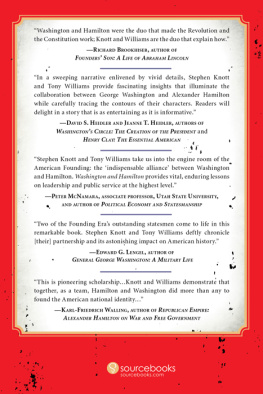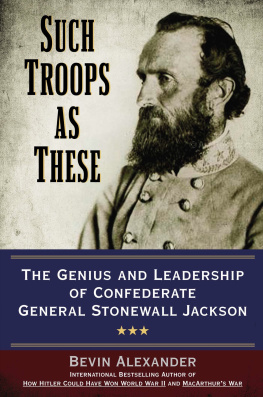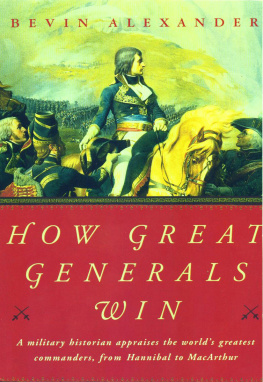Bevin Alexander - How America Got It Right: The U. S. March to Military and Political Supremacy
Here you can read online Bevin Alexander - How America Got It Right: The U. S. March to Military and Political Supremacy full text of the book (entire story) in english for free. Download pdf and epub, get meaning, cover and reviews about this ebook. year: 2005, publisher: The Crown Publishing Group, genre: History. Description of the work, (preface) as well as reviews are available. Best literature library LitArk.com created for fans of good reading and offers a wide selection of genres:
Romance novel
Science fiction
Adventure
Detective
Science
History
Home and family
Prose
Art
Politics
Computer
Non-fiction
Religion
Business
Children
Humor
Choose a favorite category and find really read worthwhile books. Enjoy immersion in the world of imagination, feel the emotions of the characters or learn something new for yourself, make an fascinating discovery.

- Book:How America Got It Right: The U. S. March to Military and Political Supremacy
- Author:
- Publisher:The Crown Publishing Group
- Genre:
- Year:2005
- Rating:3 / 5
- Favourites:Add to favourites
- Your mark:
How America Got It Right: The U. S. March to Military and Political Supremacy: summary, description and annotation
We offer to read an annotation, description, summary or preface (depends on what the author of the book "How America Got It Right: The U. S. March to Military and Political Supremacy" wrote himself). If you haven't found the necessary information about the book — write in the comments, we will try to find it.
Left-wing criticsboth at home and abroadrelish blasting our country for being the worlds sole superpower, or even an imperialist power.
But as acclaimed military historian Bevin Alexander shows in How America Got It Right, these criticisms are completely off the mark. Alexander reveals how the United States has done and continues to do exactly the right thing in military and foreign affairs. As the worlds dominant political force and military power, he says, we are the only nation that will actually go into the world and strike down evil. And we must not shirk that responsibilityespecially because we cannot rely on our so-called allies to defend our freedoms.
Alexander tells the dramatic and sometimes surprising story of how, from the American Revolution to the War on Terror, Americas core principles and ideals have shaped our march to economic, military, and political supremacy.
How America Got It Right reveals:
How in the War on Terror were simply repeating the process of World War IIgoing wherever we have to in the world to destroy those who threaten our safety
How unpatriotic critics of American foreign policy fail to understand the clear threats we now grapple withbut how our leaders get it
How America boldlyand correctlyasserted this nations unique status to the world long before we had the military strength to back up our daring proclamations
How, at almost every turn, our leaders demonstrated remarkable foresight that enabled America to become the worlds dominant power
How a policy of securing other peoples freedom is in fact grounded in American tradition, not a dangerous departure from precedent
As Americans debate what our nations role in world affairs should be, Alexander shows howfar from overreaching or bumbling into situations in which we shouldnt be involvedthe United States has properly embraced its role as world leader. Covering more than two centuries of history, How America Got It Right refutes those critics who suggest that America has somehow gone off course or overextended itself.
Indeed, according to Alexander, our government has got it right. Americas critics have got it wrong, because what they are hoping forpeace without a pricewill never come to pass.
We saw early in our colonial history thatbecause of our isolation from Europe, and because of the immense wealth and bounty of our landwe had the opportunity to build the greatest, freest, and most prosperous nation ever to arise on earth. We spent the first century and a quarter of our independent existence in creating this great nation. But to protect this treasure, we found that we needed to establish the worlds paramount military structure and become the worlds preeminent political power. This book is the story of Americas march to economic, military, and political supremacy, and the ideals that have guided us along the way. From How America Got It Right
Bevin Alexander: author's other books
Who wrote How America Got It Right: The U. S. March to Military and Political Supremacy? Find out the surname, the name of the author of the book and a list of all author's works by series.









